Ukraine’s Security After the War: Half of Her Citizens Support the Restoration of the Nuclear Arsenal
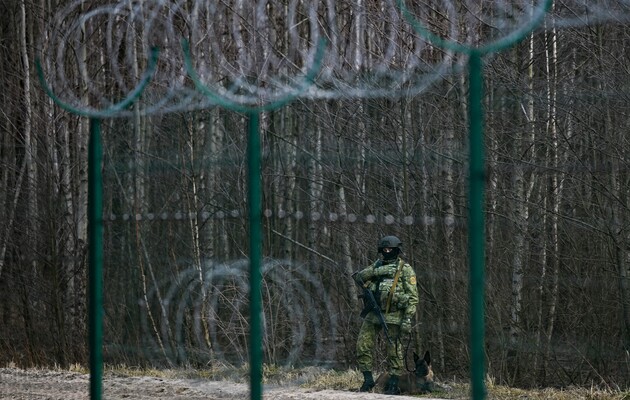
The end of the war is still far away, and the outlines of the post-war peace are still vague. However, Ukraine is already looking for ways to protect the country from another Russian invasion in the future. And there is no doubt that Russia will try to do it again: Putin has bet on the revival of the Russian Empire, and the Kremlin will seek revenge in the so-called Little Russia (a political and geographical concept in Russia, referring to most of the territory of modern-day Ukraine; Ukrainians regard its usage as offensive), taking advantage of the “freeze” of hostilities to rebuild the Russian army and prepare for new offensive operations, possibly in three–five years.
Without the so-called umbrella of NATO…
The best guarantee of our country’s security would be its participation in the collective security system — NATO. And this is the opinion of not only the leadership of Ukraine, but also its citizens. According to the results of a poll conducted by the Rating Sociological Group on behalf of the Center for Insights in Survey Research (CISR) of the International Republican Institute (IRI), in March 2023, 82 per cent of Ukrainians would support Ukraine’s accession to NATO. This is 10 per cent more than in June last year, and 23 per cent more than in April 2022.
The problem is that Ukraine will not be able to hide under the so-called umbrella of NATO in the near future.
In recent months, Ukrainian diplomacy has been trying to get an invitation from the Alliance to join the summit in Vilnius. But the United States is against even starting a discussion on defining specific steps that will allow Ukraine to join NATO. The Biden administration fears a direct armed conflict between NATO and the Russian Federation, as well as a demonstration of the lack of consensus in the Alliance. And the support of only Poland (whose Senate called for our country to be accepted into the union under an accelerated procedure), the Baltic countries, and others is not enough to turn the situation around.
It is not only the position of the USA. According to one of ZN.UA’s sources, today approximately 15-18 NATO member countries are categorically not ready to talk about formal steps regarding Ukraine’s entry into the military and political union. The reasons are not limited to the continuation of hostilities and the fear of confrontation with the Russian Federation. One of the key ones is that our country does not meet a number of criteria. And not only in the issue of the rule of law: despite the effectiveness of the Ukrainian army and its compatibility with NATO, the reform of defense mechanisms is still also necessary.
Therefore, now the Alliance is only ready to transform the Ukraine–NATO Commission into a Council, which will allow our country to participate in the making common decisions on some issues. It is about to update the comprehensive assistance package (CAP). It’s ready to create a Ukraine–NATO Center for the analysis and exchange of military experience. The Alliance is set to announce a long-term program of support for Ukraine and limit itself to phrases about “open doors.” Perhaps the Alliance will even go so far as to create a crisis consultation mechanism similar to Article 4 of the NATO Washington Treaty.
These steps will not significantly influence our security: consultations are not Article 5 of the Washington Treaty after all. Still, our partners do not go for more.
Today, the Alliance is not ready to discuss specific steps that Ukraine should take in order to become a member of NATO. Although, as Secretary General of the organization Jens Stoltenberg declares, “all NATO allies agree that Ukraine will become a member of the Alliance,” the ambiguous policy of the defense alliance gives the appearance that the Kremlin has achieved one of the goals of its so-called special military operation – to prevent Ukraine’s membership in this Euro-Atlantic organization.
Kyiv is not happy with this situation. And in this diplomatic party, the Ukrainian side wants to as much as possible play the card with the participation of Volodymyr Zelenskyy in the summit. After all, if NATO needs a demonstration of solidarity, then Ukraine needs an invitation to join the Alliance, not a promise of it. And that’s why, according to ZN.UA, when Stoltenberg announced at the end of April that Zelenskyy had agreed to accept the offer to visit the Vilnius summit, Kyiv was surprised, as the president had not yet confirmed his participation.
…but with a nuclear “shield”?
The absence of NATO’s so-called umbrella in the coming years means that Kyiv should create alternative forms of defense against Russia. It is not surprising that in such a situation there are proposals to revive the country’s nuclear arsenal.
The opinion that Russia would not attack Ukraine if we had nuclear weapons is often voiced both at conferences and in private conversations. Even former US President Bill Clinton admitted in an interview to the Irish RTE channel that he regrets convincing Ukraine to give up nuclear weapons in 1994. He suggested that Russia would not have invaded Ukraine if Kyiv still had nuclear deterrents.
Despite the hints voiced by President Zelenskyy at the Munich conference a year ago, the political leadership of our country does not aim to acquire a nuclear bomb. However, we decided to find out how this idea is treated in Ukrainian society. And it turned out that a lot of our compatriots support the idea of restoring the so-called nuclear shield of Ukraine. According to a sociological poll conducted by the Razumkov Center on the order of ZN.UA from April 28 to May 3, every second Ukrainian — 47.8 per cent — believes that Ukraine should restore its arsenal of tactical nuclear weapons. (See Fig. 1.)
In the desire to restrain Russia and prevent other neighboring countries from possible hostile steps, 44.6 per cent (!) of respondents are not frightened by the prospect that our state may become a world pariah, or by the threat that its allies in the democratic world will reject it and the country will be deprived of military and financial aid. Seeing the deaths of children, the atrocities of Russian soldiers, destroyed cities, hearing not only the wailing of sirens at night, but also the sounds of rocket explosions, 43.4 per cent of Ukrainians are not at all comforted by the fact that by getting rid of nuclear weapons, Ukraine made a great contribution to global security. (See Fig. 2.)
Only every fourth respondent opposes Ukraine’s restoration of its nuclear arsenal. It is noteworthy that almost a third (30.4 per cent) of the asked Ukrainians hesitated to answer the question, choosing between the so-called nuclear shield and the risk of Ukraine losing the support of its allies.
Those who, during the poll, supported Ukraine’s restoration of its nuclear forces, are not only people of the older generation who remember the Soviet rhetoric about the nuclear power of the “great power,” but also young people and middle-aged Ukrainians. (Although among supporters of Ukraine’s restoration of the arsenal of tactical nuclear weapons, respondents aged 60+ are on average ten percent less, compared to those who are 18–29 or 30–39 years old.) It is also noteworthy that within different educational groups — general secondary, special secondary and higher or uncompleted higher education — every second Ukrainian asked was in favor of restoring the nuclear arsenal, and only about a quarter of respondents were against it.
In my opinion, all these numbers testify to the desperation of people who are forced to live and raise their children in the conditions of war and who believe that in the absence of NATO membership, the best guarantee of Ukraine’s security would be the appearance of nuclear weapons.
According to Israeli patterns?
Currently, Kyiv is working on preparations for the signing in Vilnius of agreements on guarantees of deterrence of Russia and the security of Ukraine, which will be effective at the stage before our country joins the Alliance. According to ZN.UA, two options are being discussed. The first is bilateral agreements on the supply of weapons and their production. The second is a multilateral agreement that provides for the military and political actions of the signatories in the event that the Russian Federation attacks us again in the future.
But if Kyiv has good prospects for obtaining a decision regarding the supply of weapons, since it is part of the strategy of Western countries to contain Russia, then the signing of a multilateral document on security guarantees looks utopian in the current conditions.
We will remind you that back last fall, the co-chairs of the working group on international security guarantees for Ukraine, former NATO Secretary General Anders Fogh Rasmussen and head of the Office of the President of Ukraine Andriy Yermak, prepared recommendations for the future Kyiv Security Treaty. Rasmussen and Yermak will again present their recommendations at a conference in Copenhagen in mid-May. So, are there any countries that are ready to become reliable guarantors of Ukraine’s security?
We decided to ask which of our international partners Ukrainians would like to see among them. According to the results of a poll conducted by the Razumkov Center on the order of ZN.UA, about half of respondents believe that the most reliable security guarantees for our country will be provided not by China (4.2 per cent) or Turkey (3.3 per cent), which claim the role of mediators in negotiations between Kyiv and Moscow and meanwhile continue to trade favorably with Russia, but by the United States (52.1 per cent), Great Britain (45.2 per cent) and Poland (45 per cent). (See Fig. 3.)
This trio is significantly ahead of other countries. For instance, Germany is seen as a reliable guarantor of security by 23 per cent of asked Ukrainians, Canada – by 10.8 per cent, France – by 4.6 per cent, and Israel – by 4 per cent.
The choice of the USA, Great Britain and Poland is not at all surprising, since these countries are the most determined, consistent, and effective partners of Ukraine in her confrontation with Russia. Perhaps in Poland they are ready to sign a security guarantees instrument. But not being alone. However, in NATO and in many capitals of the Old and New World, the idea of acting as a guarantor of Ukraine’s security is still unenthusiastic.
The problem is that global players have no intention of assuming legal obligations and providing unambiguous security guarantees to Kyiv, as they are not ready to send their soldiers to our country in the event of another Russian attack on Ukraine. Meanwhile, our partners understand that doing nothing is not an option in the face of Russian aggression. Therefore, they offer our country the path of Israel and Taiwan, providing us with weapons, training our military and sharing intelligence.
Such a model has negative sides. The main ones are the constant threat of renewed hostilities, the country’s unattractiveness to foreign investment and the likelihood that many Ukrainian refugees are wary of returning home.
In conditions where there is a constant threat of renewed high-intensity conflict, the Israeli way involves serious work in transitioning the economy to a model that includes significant spending on the security and defense. The Israeli way means reforming the mobilization model and integrating the Ukrainian defense and industrial complex into the Western defense industry. This model of the state provides for constant counterintelligence and intelligence work and strengthening measures of trust between the leadership of Ukraine and NATO member countries.
Without all this, providing Ukraine only with weapons will not allow us to create effective mechanisms to deter Russia.
So, today the situation with “security for Ukraine” is as follows: it is still not invited to NATO, while no one is ready to provide it with real security guarantees, and the Ukrainian authorities, despite the existing demand in society, do not intend to restore nuclear arsenal, aware of the risk of losing much-needed help and support from Western partners. Ukraine did not receive any other proposals to protect Europe and the world from ruscism, except with the blood of its soldiers.
Please select it with the mouse and press Ctrl+Enter or Submit a bug












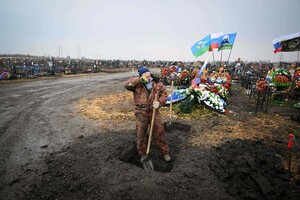
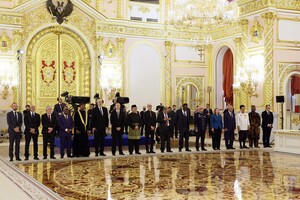

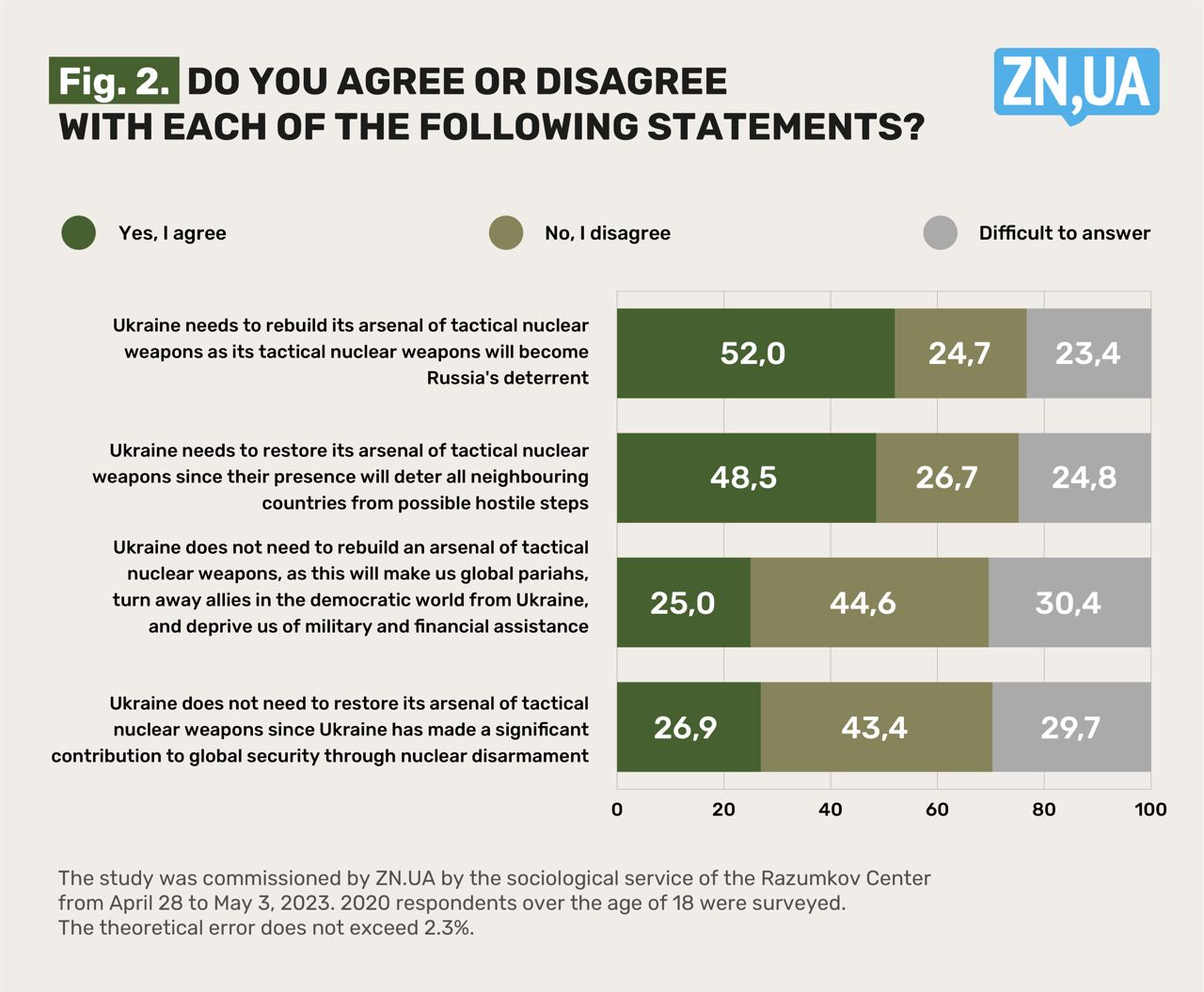
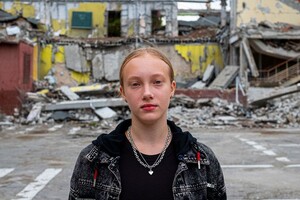

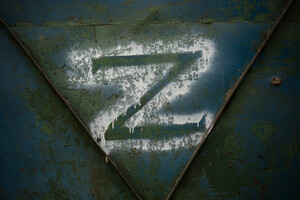
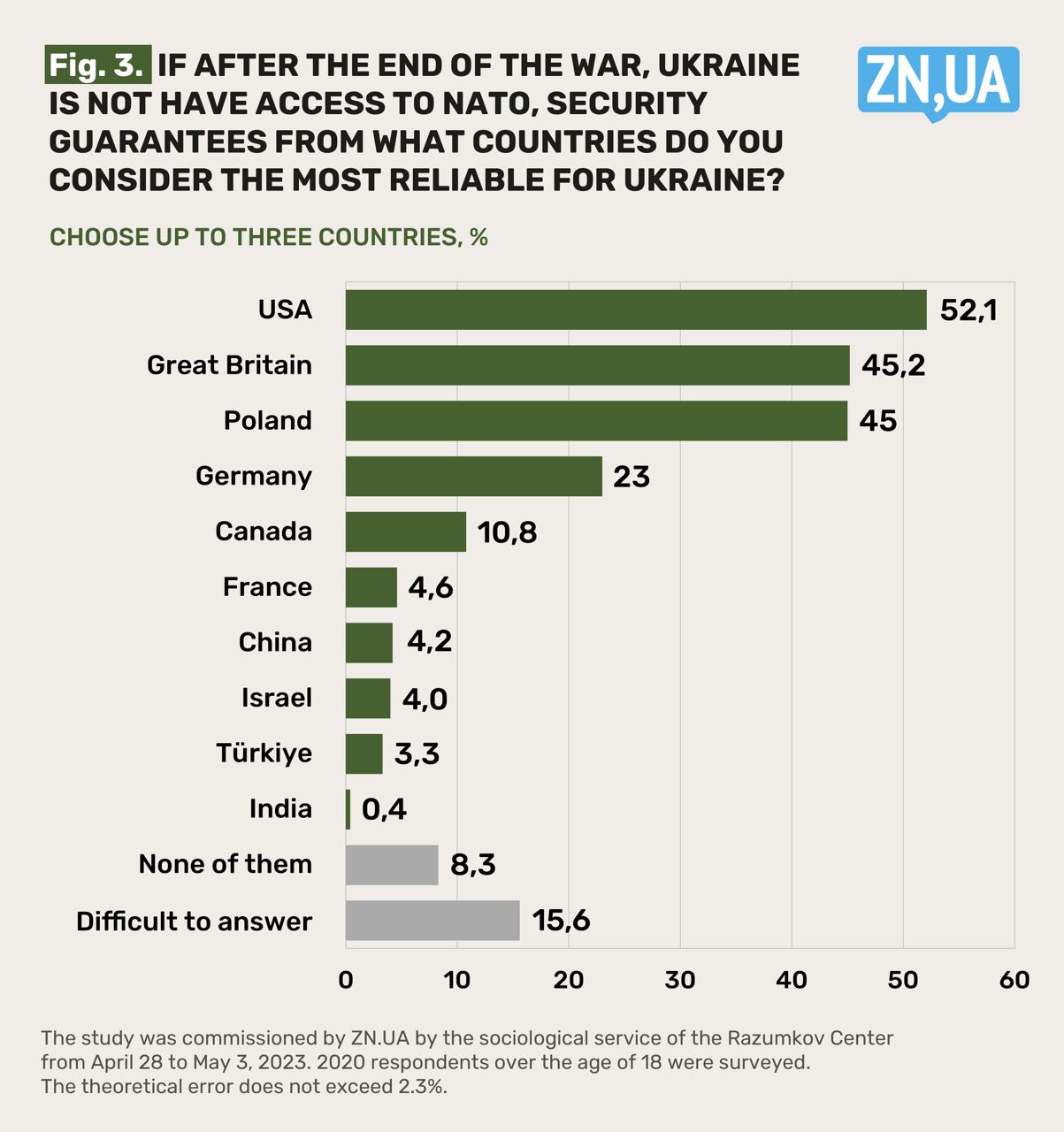
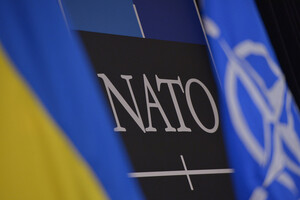
 Login with Google
Login with Google